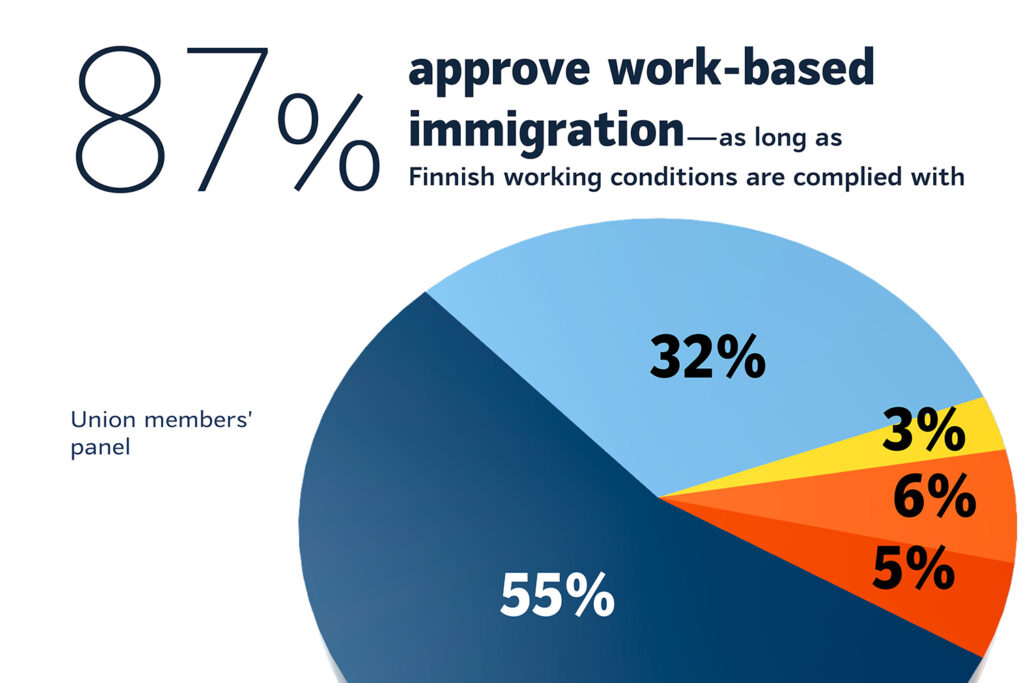Fighting wage dumping with collective agreements
In Finland, the minimum terms of employment – like pay, holidays and working hours – are usually agreed between trade unions and employers’ associations. There is no minimum pay provision in the legislation. This is defined for every branch in their collective agreement.
18.8.2021
In January this year, there were 164 generally binding valid collective agreements. This makes up more than half of all collective agreements.
What is this generally binding collective agreement and how does it work? It simply means that all employers in a certain branch must follow such collective agreement as a minimum level for the terms of employment.
Though the actual deal is done between a trade union and an employers’ association of that very branch, being generally binding extends the validity of the agreement even to those companies which are not members of the employer association.
This guarantees the same minimum conditions and pay to all. It is a benefit for both employees and employers. Wage dumping harms both: Workers would get low pay and employers would face unfair competition from companies which dump wages.
Many countries do have some kind of practise of generally binding collective agreements. But the form varies a lot. In Finland, the practise is quite comprehensive.
When the collective agreement is not generally binding, but so called normally binding, it is adhered to only by those companies that are members of the employers’ association or those who sign it separately.
The latest research on the coverage of collective agreements gives the figures from 2017. Then, 1.2 million employees in the private sector were covered by collective agreements. Without the system of generally binding agreements, 270,000 of these employees would have been left out of the minimum terms and collective agreement.
Having a collective agreement makes a real difference. Under the law there is no provision for many of the benefits workers take for granted. Without collective agreements there would be no agreed pay increases, no holiday bonus, no shift bonuses, no per diem on work trips or no free holidays during the year, like Christmas, Easter and Midsummer.
Not every collective agreement is generally binding. Usually, this status demands that more than half of the employees in that branch are working in companies that are members of the employers’ association.
The Ministry of Social Affairs and Health appoints the Advisory Board for Ratification of the Validity of Collective Agreements. It is composed of experienced judges and researchers and decides whether an agreement gets the generally binding status.
TEXT HEIKKI JOKINEN
ILLUSTRATION EMILIE UGGLA




